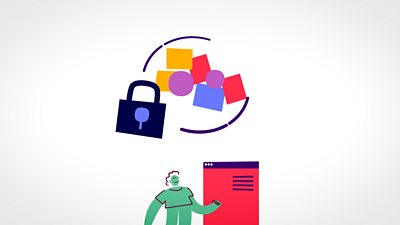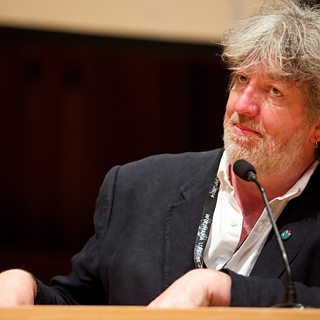More and more people are enjoying "watch parties", where friends and family watch the same programme or film via a streaming service at the same time, with one member of the group pausing and restarting play. This form of social television grew in popularity in areas that were locked-down as a result of Covid-19, but they have remained popular as restrictions have eased.
Over half (52%) of 16- 24's in the UK took part in a TV/film viewing group online in the last year, and the majority in this age bracket continue to watch programmes on their computers (50%) - ���˿��� Pulse Survey 2022
Sky has launched a Sky Glass TV with an in-built smart camera to enable and enhance features, including watch parties. It's easy to predict that new developments like shared experiences in the metaverse will include finding ways to watch and enjoy our favourite TV programmes with others.
As we take steps towards that future, the role of personal data is crucial in enabling many of the collaborative and social features audiences will want. However, this creates risks: our research has shown us that 77% of people feel vulnerable having multiple providers holding their personal information, and given that there has been a massive increase (+68%) in since 2020 and 2021 alone, this is understandable.
Fortunately, we have an opportunity to redefine the way we use data to deliver these services before dangerous practices become normalised. Here at ���˿��� Research & Development, we are exploring alternatives to the standard approach where big organisations hold personal data under their control, offering people greater agency over their data.
We believe there is enormous room for improvement in the ways data is managed online, and we are now launching an enhanced watch party to explore what this might look like. Our trial offers the benefits of social TV whilst also giving you much greater control over what data about you is stored and how it is used.
We do this using a technology called a Personal Data Store (PDS), a system that allows someone to store data about themselves in their own secure repository, either on a device or in the cloud. The user can then control access to the data in the PDS.
We believe using a PDS to power an audience-facing product at this scale is a world first.
Launching ���˿��� Together + Data Pod
Our new product, ���˿��� Together + Data Pod. has gone live on ���˿��� Taster today. It is a social watch party experience with a difference.
���˿��� Taster - Try ���˿��� Together + Data Pod
People can connect with their friends and family, building and managing friend networks to find others to watch their favourite iPlayer shows with. Once they have made these connections, they will start to get basic recommendations based on what they watched together.
The data generated, including what shows you watch and who you watch them will, is stored securely in a PDS. After the watch party has finished, rather than the ���˿��� sweeping up all the data which has been generated, we make it visible to the user with the option to edit, delete or share back with the ���˿��� to help build future services.
Seeing their data helps people understand what personal data is being collected about them across other products and services every day. This is a radically different approach to data management, and we believe that this is the first time anyone has used a PDS in this particular way in a live environment.
Why we care about data

Audiences are more aware than ever that large organisations exploit personal data for their own good, and after 25 years of giving away personal data because they felt they had no choice, they are now understandably wising up, getting increasingly unhappy and are feeling trapped by the situation.
We passionately believe ���˿��� has an opportunity to do things differently and is perfectly positioned to explore alternatives to the current situation and create a trusted and safe public service online space for our audiences, one where they have full visibility and access to their data.
The ���˿��� has been exploring personal data from a technical, user experience, and business perspective for several years now. Based on research into human data interaction by Dr Rhianne Jones, ���˿��� R&D joined the Databox project in 2018, working with Nottingham and Cambridge Universities and Imperial College London.
We developed a prototype personal data store service called the ���˿��� Box, which is currently in Manchester's Museum of Science & Technology as part of the . More recently, we have adopted the Solid platform, partnering with Tim Berners-Lee's company Inrupt.
Now we are exploring how a Solid-based PDS running on Inrupt's Enterprise Server platform could enhance the watch party experience and give users full control over their data by providing each one with their own Solid 'pod' (the term Solid uses for an individual data store).
Why is the ���˿��� doing this?
In its centenary year, as well as reflecting on our history, we continue to look forward, exploring and experimenting with the sorts of audience experience that will define the media landscape for the next hundred years.
As part of ���˿��� Research & Development's wider responsibility to map the technology landscape within which we operate and define the ���˿���'s long-term technology strategy, we are exploring ways in which today's internet can be re-imagined, changed, or perhaps even re-invented to support a digital ecosystem based on trust, accessibility, accountability and human values.
This commitment to creating a safer and more responsible internet is in line with our century-long dedication to delivering public service broadcasting over radio waves.
How did we do it?
There are no existing ���˿��� standards here, so working with and delivering fast-changing technology was a significant technical and UX achievement.
All of the data created and used to drive the ���˿��� Together + Data Pod application is stored in a user's pod, which offers users much more control of their data than normal data management approaches. In particular, the application must get explicit consent from the user before it can access that data. The data about you in the pod is never sent back to the ���˿��� unless you specifically agree to share it with us for research purposes - and you can choose to revoke this at any time.
An interesting technical challenge has been to design data flows between pods in order to allow users to suggest programmes to watch together. Traditionally the data for this would be stored centrally on ���˿��� databases. However, when using a PDS to support a collaborative experience such as a watch party, the data will be scattered across several pods. Designing data flows in a decentralised world is, therefore, a new and interesting challenge when applied to use cases involving sharing data between users.
We also faced and overcame many challenges in developing the user interface to the service, including communicating in simple and engaging ways why we're doing this. We sought to make it clear to users what was happening, why it matters to them, and what benefits they get – a complicated task when PDS is not a widespread technology and so much of the data management happens in the background, invisible to users unless they look.
We also ensured that the service, which can be used by any ���˿��� Account holder, was fully compliant with ���˿��� policies around risk governance, information security and editorial policy: this is a live service, open to anyone to join.
What do we want to learn?
We are doing this work to understand a few things. First, we want to see how this implementation of the technology stands up to being used at scale with ���˿��� platforms. Then we want to know if our interface and guidance give users what they need to want to use the service and to use it effectively. And finally, we want to understand what the long-term opportunities are for the ���˿��� with this technology.
This is an important moment for audiences. We are offering them full visibility and access to their data, with the option to share it with us if they are comfortable doing so. This is a reversal of the normal approach, where organisations hold data about people and share only some of it; whilst it's a small step, we hope it marks a change of direction in the management and stewardship of personal data.
The ���˿��� is setting out a gold standard for personal data management within the media industry and hopes to influence global policy and legislation with this work.
What next?
���˿��� Together + Data Pod is our latest experiment in this area, and after the trial, we will analyse the data which is shared with us and do additional research into our users – with their consent, of course - to better understand how audiences might use PDS-based products.
This will allow us to make recommendations around how this technology can work across portfolios of new or existing products in the future. We will publish this work as part of ���˿��� R&D's normal process of academic engagement.
We are also working with other organisations who are exploring this technology, such as NHS England and the UK's Ministry of Justice, to exchange knowledge and collaborate on shared challenges.
But for now, we are looking forward to delighting ���˿��� audiences with our new, enhanced watch parties and helping them share the joy people get from great ���˿��� content in new ways.

